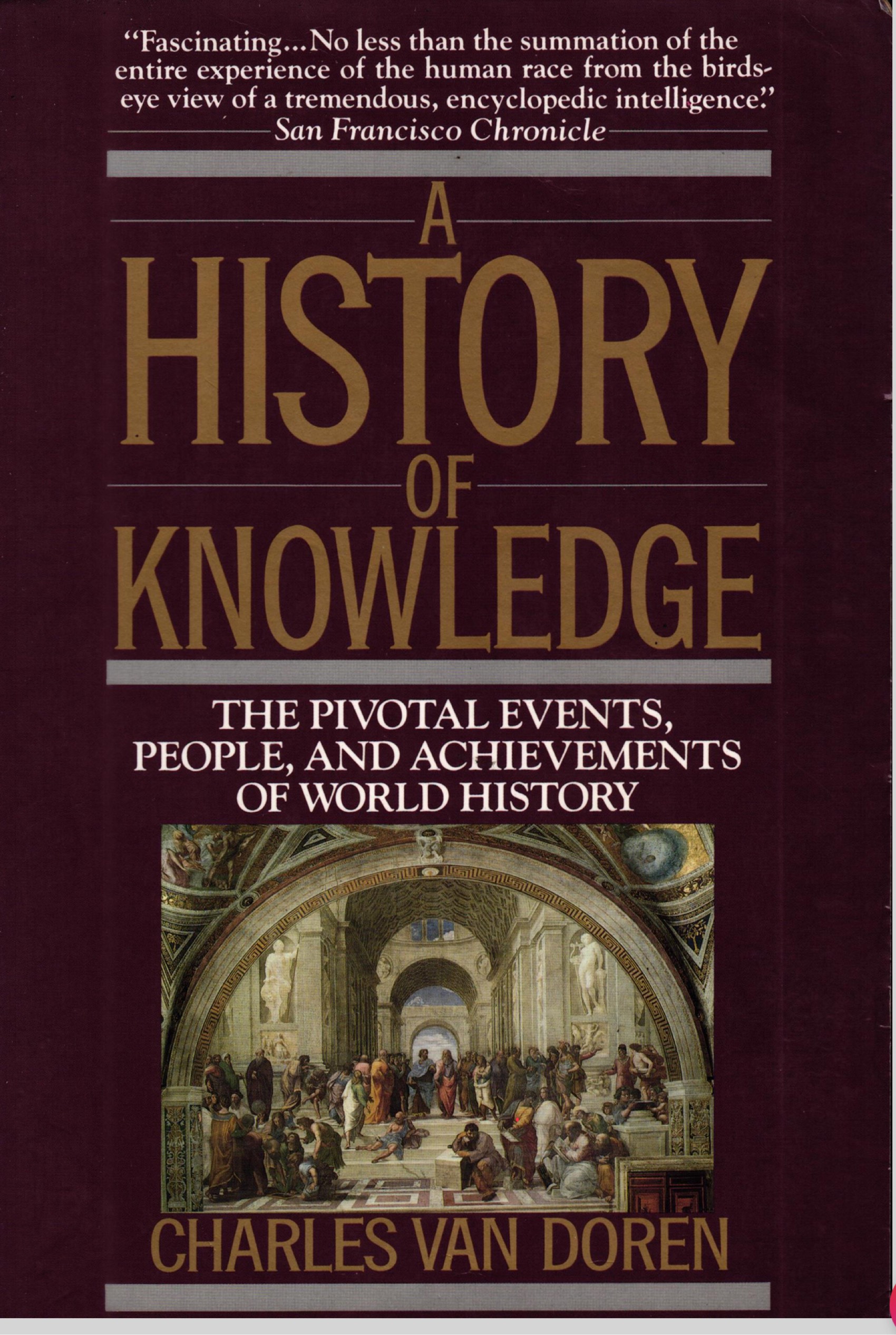A HISTORY OF KNOWLEDGE
Summary of “A History of Knowledge” by Charles Van Doren
Charles Van Doren’s A History of Knowledge explores the progression of human knowledge from ancient civilizations to modern times. The book provides an overview of pivotal events, discoveries, and intellectual movements that have shaped human understanding.
Key Themes and Content
1. Wisdom of the Ancients
• Discusses the contributions of early civilizations such as Egypt, Mesopotamia, India, China, and the Americas.
• Covers the development of writing, mathematics, and religious beliefs that influenced human progress.
2. The Greek Explosion
• Examines the philosophical and scientific advancements of Greece, including Socrates, Plato, Aristotle, and the invention of mathematics by the Pythagoreans.
• The emergence of democratic thought and historical documentation by Herodotus and Thucydides.
3. The Roman Contribution
• How Rome absorbed Greek knowledge and applied it practically in law, engineering, and administration.
• The spread of citizenship, roads, and infrastructure that shaped Western civilization.
4. The Middle Ages and the Rise of Religion
• The fall of Rome led to a shift in knowledge preservation through Christian and Islamic scholars.
• Theological debates, the Crusades, and the influence of thinkers like Avicenna and Thomas Aquinas.
5. The Renaissance and Scientific Revolution
• The rebirth of classical learning through figures like Leonardo da Vinci and Galileo.
• The invention of the printing press and the impact of the Protestant Reformation.
6. The Enlightenment and Revolutions
• The rise of rationalism, democracy, and political revolutions in America and France.
• Philosophers like Locke, Rousseau, and Voltaire who challenged monarchy and church authority.
7. The Industrial Revolution and Modern Science
• Innovations in machinery, steam power, and mass production.
• The emergence of economic theories by Karl Marx and Adam Smith.
8. The 20th Century and Beyond
• The impact of two World Wars, technological advancements, and space exploration.
• The digital age, artificial intelligence, and the challenges of future knowledge.
Conclusion
The book highlights how human knowledge has evolved over centuries, emphasizing that intellectual progress is continuous but not always linear. Van Doren predicts future advancements and the role of technology in shaping human civilization.
